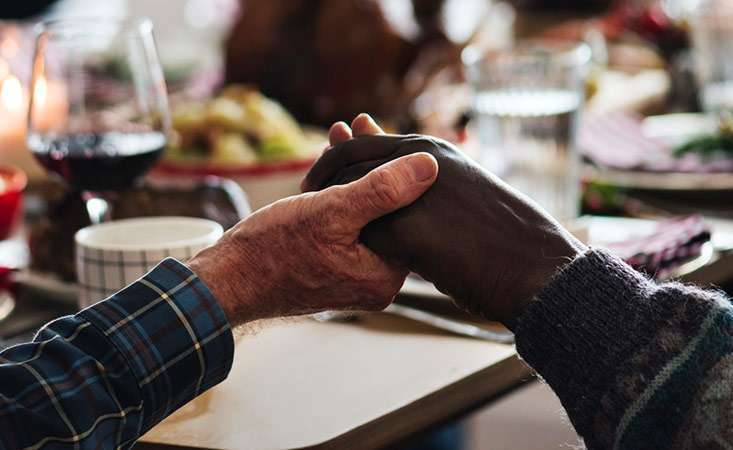
The holiday season is filled with a lot of activity: getting gifts, decorating, participating in religious traditions, gathering with family, friends and colleagues. And all that festive activity can be filled with stress as well, especially if you’re a pancreatic cancer patient or caregiver. Some people dealing with the disease might also feel disconnected and have various emotions during the December holidays.
Supportive care can help you find the right balance between celebrating the holidays and taking care of yourself. It focuses on providing relief from the symptoms, side effects and stress of pancreatic cancer.
Seeing healthcare professionals who focus on symptom management and supportive care improves outcomes and is critical for quality of life.
The Pancreatic Cancer Action Network (PanCAN) strongly recommends that symptom management and supportive (palliative) care be provided early after diagnosis, as well as during and after treatment.
Take advantage of these tips and resources to help manage common challenges with the disease such as fatigue and pain that can be particularly difficult during the holiday rush.
Managing Fatigue
When it comes to managing fatigue, the best place to start is working with the doctor, and preferably a palliative care specialist (a doctor who specializes in managing symptoms and side effects), to determine the possible cause and appropriate treatment.
One common physical problem that can lead to fatigue is anemia. Since chemotherapy can cause anemia, speaking with the doctor about the use of erythropoietins, like Procrit, to boost red blood cell production is a potential solution.
It is important to note when making treatment-related recommendations, a doctor will take a number of factors into consideration, including the patient’s overall health, medical history and diagnosis details. Doctors and patients must often balance the possible risks and side effects with the potential benefits of each treatment.
The Pancreatic Cancer Action Network strongly recommends that patients seek a healthcare team that suits all of their physical, mental and emotional needs.
Meeting with a registered dietitian can also be helpful to determine if there are any changes in diet or supplements that could help fight the fatigue. It is important to consider that the body might not be getting enough nutrients to fuel itself properly.
Everyone wants to have the energy to enjoy holiday festivities with loved ones, so pace yourself and decline certain activities when necessary. Here are a few more practical steps:
- Take several short naps or rest breaks throughout the day
- Break activity into small increments of five to 10 minutes
- Ask family or friends to help with difficult tasks
- Try easier or shorter versions of the activities you enjoy
Managing Pain
Our PanCAN Patient Services team shared that the pain a patient may experience is very individual and can be managed in different ways, including with prescription drugs, interventional methods and/or non-drug approaches. A pain or supportive care specialist can work with the patient to ensure pain is properly managed, which can contribute to maintaining quality of life and being able to receive scheduled treatments.
Treatment may cause side effects that are painful as well, such as mouth sores or neuropathy. Supportive care techniques, such as diet modifications or protecting the hands and feet, can help to lessen these symptoms so that treatment can continue.
The disease itself may also cause uncomfortable symptoms, which are often diet-related. Many people consider diet modifications, such as avoiding gas-forming foods, helpful.
Additionally, some patients find mind-body practices like yoga, massage and acupuncture can help them relax while also distracting them from the pain. Acupuncture has also been shown to reduce nausea and vomiting caused by chemotherapy treatment, and it may help with other symptoms, such as fatigue, neuropathy and depression.
Patients and caregivers can try these simple meditation and restorative yoga practices to reduce stress from nationally recognized yoga and meditation teacher Lauren Eckstrom, who cared for her father while he had the disease.
Even when one is feeling their best, the holidays can be stressful. Consider new roles and traditions that you can handle. Even when it comes to cooking and eating, nausea and changes in taste can affect the preparation and enjoyment of food.
As a patient or caregiver, it’s important to set reasonable expectations in order to participate in ways that are manageable.
Talk to your healthcare team or contact PanCAN Patient Services for reputable resources to help manage symptoms and side effects of the disease.














